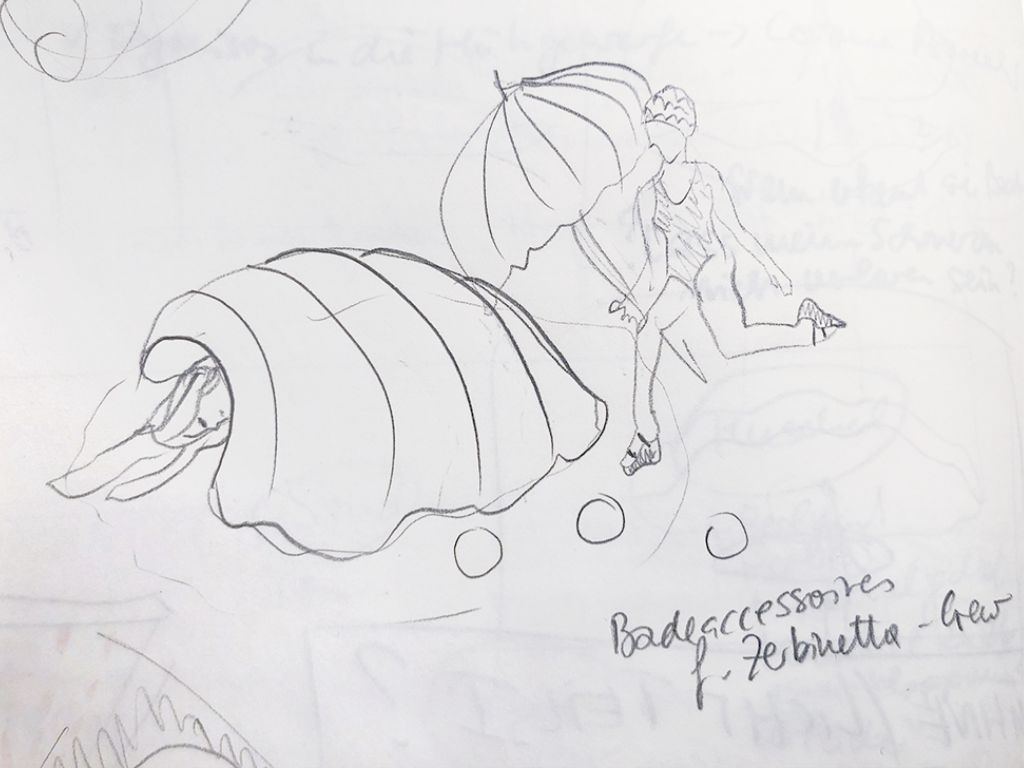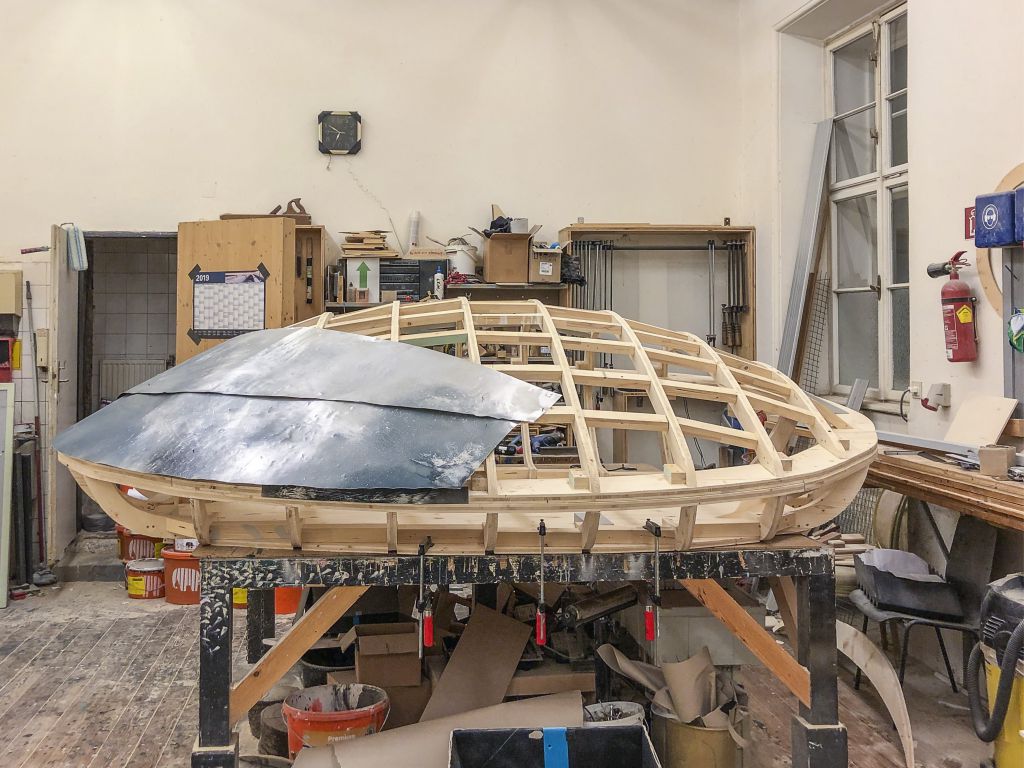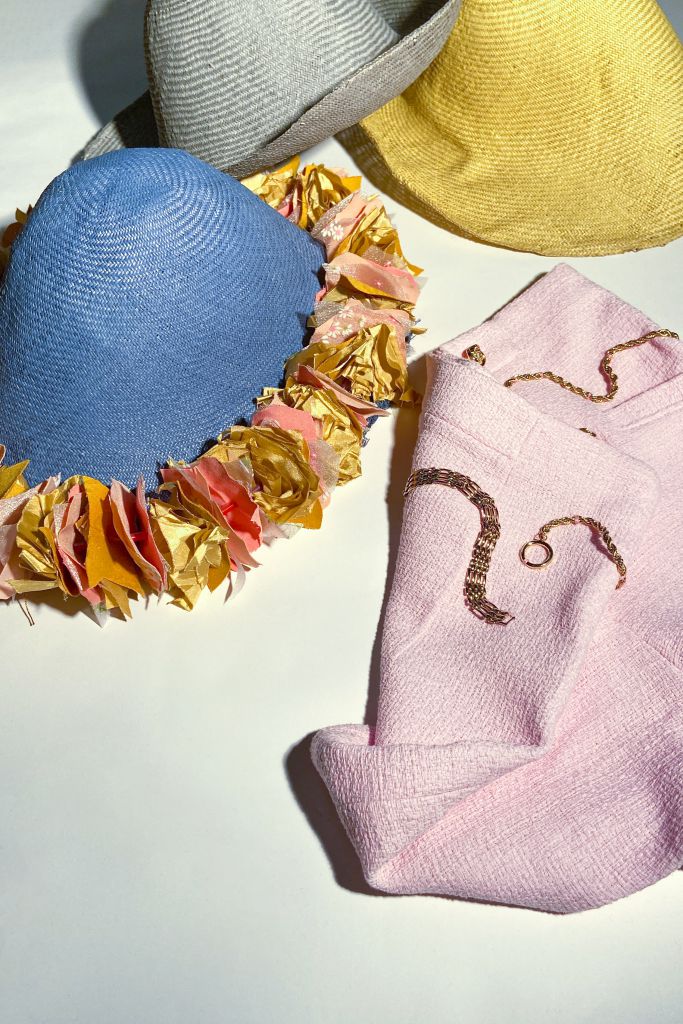Richard Strauss’s opera Ariadne auf Naxos is the ideal material for a project that aims to interlace the numerous departments of the mdw – University of Music and Performing Arts Vienna. Participants explain just why that is so in a conversation with mdw Magazine.
Is post-dramatic theatre truly a 1980s invention? If one looks at the opera Ariadne auf Naxos by Richard Strauss with its libretto by Hugo von Hofmannsthal, it becomes clear that at least certain notions (like “meta-theatre” and “work-in-progress”) as well as the debate over whether high culture and entertainment are compatible do indeed have a long tradition.
“This is an opera about an opera that deals with questions of art and entertainment,” says director Michael Sturminger, who is currently rehearsing Ariadne auf Naxos together with students at the mdw’s Department of Vocal Studies and Music Theatre—with the première scheduled (COVID-19 permitting) for early May at Schlosstheater Schönbrunn. The plot features a nouveau riche host who’s determined to wow his guests with something special: the performance of an opera personally commissioned by him followed by a burlesque dance work. But it gets worse: due to time constraints, the order is given to perform the opera seria Ariadne and the burlesque simultaneously. After all, the performance can’t last more than an hour since, at that point, the fireworks are set to begin. “Just imagine,” says Sturminger: “These days, that would be like simultaneously putting on Dancing Stars and a contemporary opera.”

This opera also features a composer who shares striking similarities with Richard Strauss himself. Strauss thought it important for this to be a pants role—probably in part so as to ensure a certain distance. “But we see no reason to have a young woman play a young man. After all, there are lots of female composers around these days,” says Sturminger of his contemporary approach. To his mind, this work also addresses issues that remain relevant to the discourse on aesthetics: “Theatre and opera are applied art forms. Entertainment must contain art. And art must also contain entertainment.” Ariadne auf Naxos features constant contemplation of music and the conditions under which it can be realised. “These are themes that our students are dealing with, too: How to approach such a profession?” says Sturminger.
“This opera is ideal because the students can learn so much from it,” agrees Christoph Ulrich Meier, who has charge of the project’s musical side: “It’s got big monologues, dance scenes, and Sprechgesang. Vocally, its roles are challenging—which is why they’re often cast with weighty, mature voices. But I want to try and bring out the chamber music aspects that Strauss was going for.” Meier is also struck by how current the plot has once again become in light of the coronavirus pandemic: “It deals with the role of artists in society. And right now, with politicians lumping the arts together with brothels and paintball venues, life kind of does feel like a throwback to the 18th century.” Ariadne auf Naxos puts its finger right on this feeling, with heroic opera being treated like nothing more than a digestif.

“At some points, it makes our heads spin: on just what level are we, here?” says Melanie Unseld of the Department of Musicology and Performance Studies, who’s currently holding a seminar on the material. After all, Ariadne auf Naxos is, in part, an attempt to rescue a failed project by way of a remix—and precisely this is also a theme onstage. Strauss and Hofmannsthal’s original idea had been to rework Molière’s comedy Le Bourgeois gentilhomme with new stage music. They then tacked onto it the tragic opera Ariadne auf Naxos. This four-hour work’s 1912 première, directed by Max Reinhardt, flopped: it was simply too long-winded. So in its second version, introduced in 1916, Strauss and Hofmannsthal departed even farther from Molière’s original, creating a version of his work that was truly their own.
Unseld and her students are investigating just what it means to interpret and adapt a work. Unseld’s seminar introduces future professional singers—i.e., practitioners—to the world of scholarship. “The idea is to have them learn to develop their own ideas for a given material independently”, she says, “so that they view scholarship not as this alien thing but as an endeavour that’s directly relevant to them. Our goal is to help empower them as reflective artists.” As part of this, the future opera stars are hard at work authoring texts for the programme booklet. And this summer, the performances will be accompanied by a symposium in which researchers and the artists will enter into dialogue.
A broader concern of this project is to promote the sort of networking, communication, and exchange that can have a major impact on the mdw itself. The mdw is one of the world’s largest universities of music, with 25 departments that provide training in fields ranging from music theory to the dramatic arts, film and television, and church music. “For years now, I’ve wanted to move away from this thing where every department works only for itself. My desire is to have the various departments interlace what they do,” says Margit Klaushofer, head of the Department of Vocal Studies and Music Theatre. It was Klaushofer who first had the idea for this multidisciplinary project, which also involves the Max Reinhardt Seminar. There, director David Bösch and his students will be producing the separate performance Bienvenue, Parvenü! Kunst-Bürger-Liebe. Musikalisch-szenische Betrachtungen nach Lully und Molière [Well met, parvenu! Art-Bourgeois-Love. Musical and Theatrical Considerations after Lully and Molière] in collaboration with Johannes Weiss, who teaches at the Department of Early Music.

Le Bourgeois gentilhomme is a ballet created by Molière and the composer Jean-Baptiste Lully. It marked the zenith of their extended collaboration, with both of them performing onstage. The plot centres on a bourgeois who aspires to be a nobleman but blunders every chance he gets. Back then, Lully had already developed a highly independent French musical style out of which he eventually created the fully fledged French baroque opera, explains Weiss, who will lead the baroque orchestra featured in this project: “It’s fascinating how this work lampoons absolutely everyone, from the bourgeois to the nobility. One’s almost amazed that it was so popular back then.” Since performing the entire work would be too big a project, a different approach has been chosen: ”We’ll be performing excerpts from Lully’s music interspersed with scenes where the wealthy parvenu goes for acting, fencing, and philosophy lessons,” says Weiss.
The production of Ariadne auf Naxos will, by the way, include a prominent cameo: the speaking role of the Majordomo will be played by the Austrian comedian Alfred Dorfer. And this, too, is innovative and original: one usually sees this part played by famous actors.

